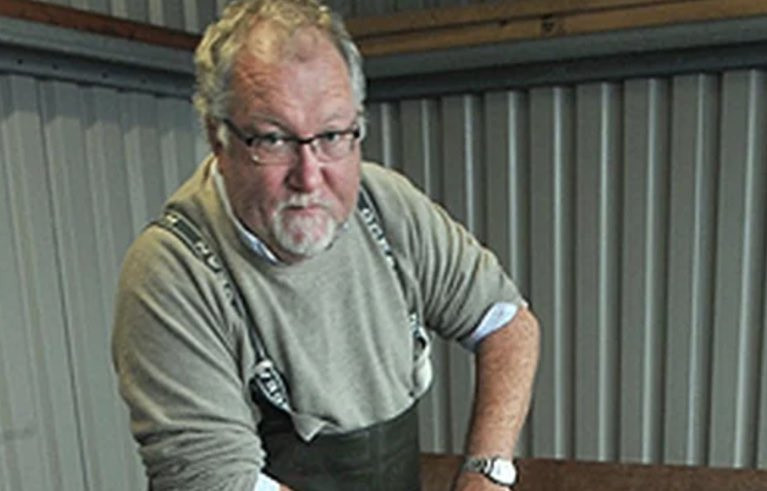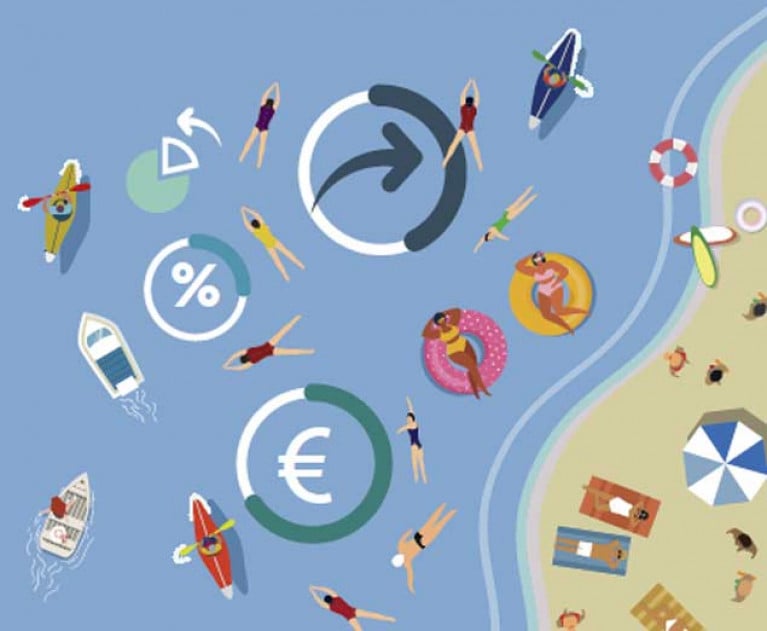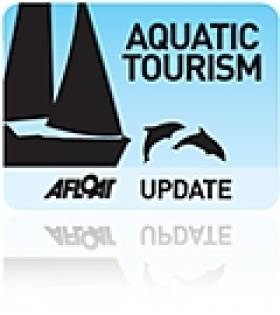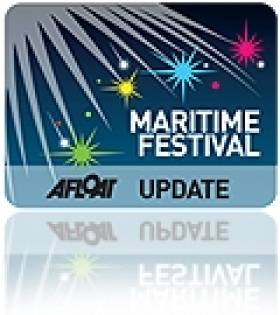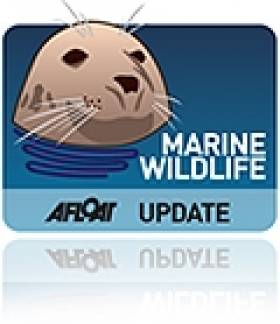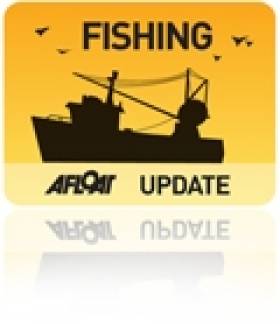Displaying items by tag: marine tourism
Anchovies, Blue Tuna, Sardines & Marine Tourism; Do State Agencies Talk to Each Other?
"Someone needs to bang the table and bang heads together. Do State agencies talk to each other?"
That blunt statement caused me to think a lot this week when I am still disappointed at official attitudes towards the marine sector.
I was talking to a man who has forty years' maritime experience and is the 'go-to' marine scientist and biologist often quoted and interviewed in the media about climate change, warming seas and the effects on waters around the coast.
Kevin Flannery of Dingle knows the State system from the inside. He was a fisheries inspector, and he was in an angry mood when we spoke.
There are times when I am astonished by what I am told about State organisations and their attitude towards the maritime sector. What he said was a shocking example, raising the question – Do State agencies talk to each other?
Anchovies & Sardines
Afloat highlighted recently the discovery of a potential new fishery on the South/West Coast, anchovies and sardines, an indication that species not before in Irish waters in big numbers are moving here, as other species may be moving away because of the effects of climate change on water temperatures. Anchovies are a little silver fish mostly found in the Mediterranean, Pacific and Atlantic, noted for their salty flavour and used, amongst other food consumption purposes, on pizzas, salads, sandwiches, sauces, dressings and dips.
Irish fishermen catching Bluefin Tuna
"My worry is that other nations will claim rights to them like they did to stop Irish fishermen catching Bluefin tuna in our own waters and another fishery will be lost because of neglect. This fishery is sustainable, so why are our agencies not organising to ensure it remains ours? There is an urgent need and potential for development and diversification. The fishery is sustainable, so why are our agencies not organising to ensure it remains ours?" Kevin Flannery told me. "There are also stocks of sardines showing, bream, octopus, and we are getting reports of all these. Are the agencies talking to each other at all, or is it 'never the 'twain shall meet between them? Somebody needs to bang heads together and say these resources are ours".
Listen to the Podcast to below how upset Kevin Flannery is about the attitude of State agencies.
Marine tourism projects involving boats
And, following up on my report last week about the Department of Finance refusing pandemic financial assistance to Killary Fjord Boat Company because its boats move, I remain astonished that this attitude persists amongst the officials of that Department. I had a few 'interactions' with the Department when seeking an explanation. Their Press Office told me they were referring my questions to 'the Revenue', then came back with a long statement, the core point of which was that a "qualifying business premises is a building or other similar fixed physical structure in which a business activity is ordinarily carried on.' The statement had a Departmental pun. In preparing the support scheme, "it was necessary to provide appropriate anchor points." Maybe the civil servants responsible think boats are best anchored!
It doesn't show a particularly positive attitude towards marine tourism projects involving boats. "Significant additional resources were allocated by Government in the Budget to provide help to different sectors including tourism," the Department said. But does this include boats which move?
A loss to Irish fishermen
A final point about official attitudes, where I saw the Department of the Marine contradict its own Minster. It issued a "preliminary analysis" of the transfer of fishing quota shares from Ireland/EU to the UK under the Brexit deal where it estimated the loss to Irish fishermen at €43 Million. This contradicted the lower figure of €34 million given by its own boss, Marine Minister Charlie Monologue and Foreign Affairs Minister Simon Coveney after the deal was agreed on Christmas Eve.
From the past week, I am left wondering if the reality of Ireland being an island nation is fully understood.
Coastal & Marine Tourism Could Help "Reboot" Badly Hit Sector, NUI Galway Report Finds
Domestic coastal and marine tourism could help to “reboot” a sector which has been badly hit by the Covid-19 pandemic, a new report by NUI Galway (NUIG) finds.
“Marine-active” holidaymakers tend to stay longer and spend more than the average visitor, the study of domestic tourism by NUIG’s Socio-Economic Marine Research Unit (SEMRU) says.
Total expenditure by domestic tourists in coastal areas was estimated to be €698 million in 2018, which represents 35% of the total expenditure by domestic tourists that year, the study says.
The marine-related activity expenditure on overnight trips is estimated to have generated revenue of €381 million, with €172 million of this being spent on water-based activities.
The study found that average expenditure per coastal day trip in 2018 was €95, and the equivalent for coastal overnight trips was €310.
A survey for the study found that the most popular land-based coastal activities were walking/running along the coast/beach/cliffs/, beach or seaside trips, and coastal sightseeing.
The most popular water-based activities were sea swimming, surfing, recreational boating of different types and sea angling.
It notes that “significant differences in participation rates were observed across a number of socio-demographic classifications, including age, social class and education attainment levels”.
The results also indicate that domestic tourists undertake the majority of their marine activities on the west and south Irish coasts.
The authors argue that “given the observed differences in marine activity... across the social classes”, a “worthy policy objective would be ensuring that all sections of society can access.. the well-being and mental health benefits”.
. “Given the current crisis this is more important than ever,” the authors state.
“It also offers an opportunity to develop new marine tourism offerings focused on the expanding consumer demand for wellness services and products,” they state.
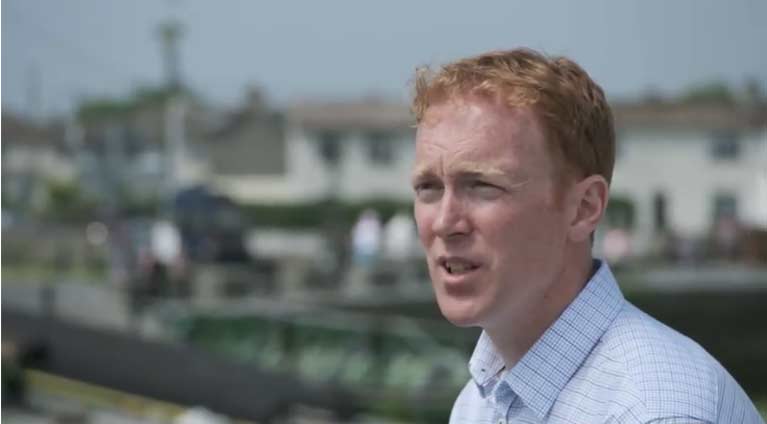 Co-author of the report Dr Stephen Hynes
Co-author of the report Dr Stephen Hynes
Dr Stephen Hynes, director of SEMRU and co-author, said that while the results predate the impact of the current pandemic, they “highlight the economic contribution that domestic marine tourism and leisure activity makes under normal circumstances to coastal regions, particularly those regions outside the capital”.
“Also, given that it is likely that the overseas tourism market will take much longer to recover, and Irish residents’ travel abroad will also be curtailed, the industry should be examining how they can maximise the return from the domestic tourism market this year and next,” he said.
Commenting on the report, Prof Alan Ahearne of NUIG’s Whitaker Institute noted that the World Tourism Organisation is forecasting that international tourist arrivals could plunge 60-80% this year, and “may remain at depressed levels next year”.
“Tourism in Ireland will be looking to domestic demand for recovery - and the evidence points to the huge potential for coastal and marine tourism to contribute to rebooting activity in this sector,” Prof Ahearne said.
Download the full report from NUIG below as a PDF
#MARINE TOURISM - The Loughs Agency has announced the availability of funding of up to £7,500 (€9,200) to support angling development and/or marine tourism projects that benefit the Foyle or Carlingford areas.
The limited budget comes by way of the cross-border agency's Sustainable Development Fund, and it advises that only a small number of projects may receive funding.
Applications will be accepted under the themes of developing access and other infrastructure for marine tourism and angling; developing marine tourism and angling products; providing accommodation and facilities for anglers and tourists; and training to develop and enhance capacity for angling and tourism.
Funding will be at a level of up to 75% of total eligible expenditure, and all public sector requirements apply for procurement (including quotes). Approved projects must also be completed by December this year.
Completed application forms must be received at Loughs Agency headquarters by 9.30am on Tuesday 17 July 2012.
Inland Fisheries Ireland has full details HERE on the project criteria and how to apply for funding. Application forms are available on the Loughs Agency website HERE.
SeaFest Celebrates Donegal's Coastal Heritage
The shores of Lough Swilly in Co Donegal will come alive with sails at SeaFest 2011 from 1-3 July, celebrating the region's unique coastal environment.
The weekend begins on Friday 1 July with the launch of MalinWaters, a new cross-border marine tourism initiative for the zone between the north of Ireland and western Scotland.
It's followed on the Saturday with a parade of sails and action in the Saldanha Cup, a traditional cruiser-racer sailing regatta that commemorates the 200th anniversary of the sinking of the frigate HMS Saldanha, with a course that takes on the wreck site of the ship near Ballymastocker Strand.
Among the myriad family events taking place on shore, SeaFest will also feature an abundance of Donegal's local food culture, such as fresh seafood from local waters, plus lamb, beef and pork from the county's field, prepared by talented chefs from the region.
For more details visit seafestloughswilly.com.
Labour Manifesto Leads the Way on Irish Maritime Affairs
Fine Gael has told Afloat.ie details of its marine policy will be published in its manifesto tomorrow. If that's the case things are looking up for anyone interested in seeing Ireland develop the valuable waters that surround it.
After searching for references to 'sea', 'marine' or 'maritime' only the Labour party has so far made the only significant written commitment to the marine sector in its programme for government. Its manifesto acknowledges that Coastal Communities, Fisheries and the Marine face major challenges in the years ahead, but it is also an area of major economic potential.
Fianna Fail merely says on page 21 of its manifesto that it will ensure that 'an inter-departmental strategy is in place to improve the leisure potential of our harbours and increase marine tourism'.
The Green Party 'Renewing Ireland' document says it will promote the creation of marinas and youth and child friendly water sports to encourage activity and awareness of our maritime country. It also says Ireland will participates in the North Seas Offshore Grid Plan.
There is no reference to the marine in the Sinn Fein 'There is a Better Way' manifesto.
Four party manifestos are available to download below.
Labour's priority will be to develop Ireland as a European hub for seafood processing, which will create sustainable, value-added jobs in coastal communities.
Labour will also develop an Irish seafood strategy to grow the market profile and demand for Irish seafood products. We will support the development of sustainable aquaculture and fish farms by streamlining the licensing process and reducing, as much as possible, the associated bureaucracy. To further assist the development of the sector, responsibility for maritime policy will, as far as is practicable, be concentrated in one department.
Labour will establish a Sea Fisheries Sustainability Impact Assessment based on consultation with all major stakeholders. This report will be brought before the Dáil on an annual basis before EU fisheries negotiations commence, and will ensure that there is a regular evaluation of Irish fish stocks and the effectiveness of current policy and quotas.
Labour is open to the experience and expertise of those whose livelihoods depend on maritime activity. The Department of Agriculture, Fisheries and Food will engage in an ongoing structured consultation with industry representatives, the marine scientific community and other stakeholders to enable them to contribute to national maritime policy.
Finally, safety at sea and decent working conditions must underpin the development of the fisheries sector. Labour in government will ensure that the Irish Coast Guard has access to an Emergency Towing Vessel.
Dun Laoghaire People before Profit candidate Richard Boyd Barrett who has campaigned under a 'Save our Seafront' banner in the last council elections, is holding a meeting tomorrow night in Dun Laoghaire, the country's largest boating centre to protest against the possible 'privatisation' of the town's harbour.
We're tracking the progress of maritime affairs in the general election and posting details on afloat.ie. Whether you're a candidate or a vote please get in touch with your #ge11 marine news. Contact us via facebook, twitter or our website.
Fáilte Ireland in Whale Advert Gaffe
Fáilte Ireland has come under fire for an advert that shows a whale that cannot be found in Irish waters.
According to the Irish Examiner, the Irish Whale and Dolphin Group (IWDG) has questioned by images of humpback or fin whales, which are a common sight off Ireland's coast, were not used instead.
The IWDG'sSimon Berrow said: "It’s great that we are promoting marine tourism but if we are serious about it, let’s do it properly."
Last year Fáilte Ireland was criticised for a similar advertisement that used stock footage of a whale species not found in Ireland.
The Irish Examiner has more on the story HERE.
Grant Aid Announced for 129 Fisheries Projects
Grant-aid of €1,122,084 is being provided to support a total investment of €2,023,127 for safety upgrades on board fishing vessels, lobster conservation, the development of Environmental Management Systems for Ireland's fishing fleet, and a number of collectively based projects under the new Marine Environment Protection Scheme (MEPS).
"These projects will further support our fishing industry", said Minister Connick. "Based as they are on the principle of responsible fishing practices that result in premium quality Irish seafood, the environmental focus for many of these projects will be critical in sustaining Ireland's fisheries sector during this time of unprecedented economic challenge".
A range of marine environment, conservation and safety initiatives are approved. Jointly developed by the industry and Bord Iascaigh Mhara, the Seafood Environmental Management System (sEMS) and the Marine Environment Protection Scheme (MEPS), respond to the growing demand by seafood providers and consumers for access to responsibly sourced wild caught fish. Included is grant-aid of over €350,000 to assist Irish fishing vessels develop and implement Environmental Management Systems as well as undergoing third-party accreditation for the newly developed BIM Stewardship Standard. This internationally accredited (ISO65 – EN45011) standard is amongst the first of its kind worldwide. Ireland led the way with the introduction of the first such scheme for salmon in 2005 and since then has developed similar schemes for mussels and oysters.
BIM will also roll out the €419,000 Marine Environment Protection Measure, a programme aimed to maintain healthy fish stocks while simultaneously developing the marine environment. The national lobster conservation programme is also funded to the tune of €113,000 with a similar investment being made by inshore fishermen.
A full list of all the projects funded is provided below.
Sea Fisheries Development Programme
Fisheries Operational Programme – European Fisheries Fund
|
SCHEME |
Projects Approved |
Investment |
Total Grant Aid |
|
Marine Environment Protection Measure*
|
8 |
€477,366 |
€418,902 |
|
SEAFOOD ENVIRONMENTAL MANAGEMENT & CERTIFICATION GRANT AID SCHEME*
|
7 |
€740,117 |
€350,073 |
|
Shellfish Discard & Live Return Reduction scheme - Lobster conservation* |
42 |
€205,680 |
€113,124 |
|
FLEET SAFETY SCHEME
|
70 |
€483,936 |
€193,574 |
|
MARINE TOURISM SAFETY SCHEME
|
2 |
€116,029 |
€46,411 |
|
TOTAL |
129 |
€2,023,127 |
€1,122,084 |


























